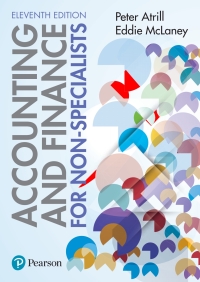Question
1. Case 7-5 Dell Computer: In his analysis of the Dell fraud for Forbes, Edward Hess comments: Too often, the market's maniacal focus on creating
1. Case 7-5 Dell Computer: In his analysis of the Dell fraud for Forbes, Edward Hess comments: "Too often, the market's maniacal focus on creating ever-increasing quarterly earnings drives bad corporate behavior, as it apparently did at Dell. That behavior produces non-authentic earnings that obscure what is really happening in business. Short-termism can result in a range of corporate and financial games that may enrich management at the expense of market integrity and efficient investor capital allocation." Comment on Hess's statement from two (2) perspectives: earnings management and financial analysts earnings projections.
2. Explain the difference between financial statement fraud and disclosure fraud. How did Dell use each one to produce materially misstated financial results?
3. Do you agree with the court opinion that PwC did not act with fraudulent intent, therefore, not holding it legally liable? How can fraudulent intent be established in a case like Dell?
4. In addition, Dell used "cookie-jar reserves" to inflate income and "make the numbers" Wall Street wanted to see. Discuss and describe cookie-jar reserves and the ethical implications.
Not looking for an exact answer, but if you could provide information useful in answering the questions above. THANK YOU
Step by Step Solution
There are 3 Steps involved in it
Step: 1

Get Instant Access to Expert-Tailored Solutions
See step-by-step solutions with expert insights and AI powered tools for academic success
Step: 2

Step: 3

Ace Your Homework with AI
Get the answers you need in no time with our AI-driven, step-by-step assistance
Get Started


